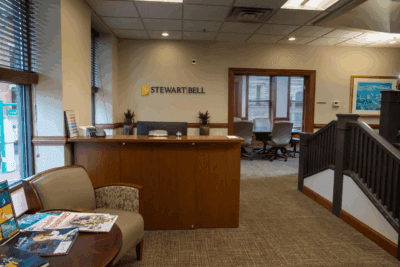
The Short Answer…
To report nursing home abuse in West Virginia, you should contact Adult Protective Services through the West Virginia Department of Health and Human Resources. You can also report to the Office of Health Facility Licensure & Certification for facility-related concerns, or reach out to the Long-Term Care Ombudsman Program for confidential advocacy. If the situation involves immediate danger, call 911 right away.
This guide explains how to report nursing home abuse in West Virginia, what signs to look for, who to contact, how to submit a written or anonymous report, and what happens after you file a complaint. If you believe a nursing home resident is being mistreated, don’t wait—knowing what to do and taking action can protect their safety and dignity.
Key Takeaways
- Act quickly to prevent harm: Don’t wait to report suspected abuse. Timely action can protect your loved one and others in the facility.
- Identify and document signs of abuse: Look for physical, emotional, or financial red flags, and gather detailed evidence when possible.
- Report to the appropriate agency: You can file a complaint with Adult Protective Services, the state’s licensing authority, the ombudsman, or law enforcement depending on the situation.
- You can report anonymously: Both online forms and hotlines often allow you to file without sharing your identity.
- Legal help is available: If your concerns are ignored or abuse continues, an experienced nursing home abuse lawyer can help you pursue justice and compensation.
Table of Contents
- How Do You Report Abuse in a Nursing Home?
- Who Do You Report Abuse to in a Nursing Home?
- How Do You Anonymously Report a Nursing Home?
- Nursing Home Abuse Reporting Requirements in West Virginia
- What Happens After You File a Complaint?
- Why Families Across West Virginia Turn to Stewart Bell for Justice
- Reporting Nursing Home Abuse FAQs
- Take Action Today: Get Help Reporting Nursing Home Abuse and Protect Your Loved One
How Do You Report Abuse in a Nursing Home?
If you suspect abuse in a nursing home, acting quickly can prevent further harm and possibly save a life. Here’s how to report the abuse and help ensure it’s properly documented and investigated:
Step 1: Identify the Type of Abuse
Determine if the abuse is physical, emotional, sexual, financial, or neglect. Look for signs like:
- Unexplained injuries
- Sudden behavioral changes
- Poor hygiene or bedsores
- Missing money or valuables
- Staff refusing visitation
Step 2: Ensure Immediate Safety
If someone is in immediate danger, call 911 or your local police. Emergency responders can remove the resident from harm and begin an investigation.
Step 3: Document Everything
Gather as much evidence as possible:
- Take photos of injuries or unsafe conditions
- Write down dates, times, and descriptions of what you witnessed
- Keep copies of medical records or financial documents
- Record names of staff members or other witnesses
Step 4: Report to the Appropriate Agency
You can report nursing home abuse to several authorities:
- Adult Protective Services (APS): Investigates abuse of vulnerable adults.
- Long-Term Care Ombudsman: Advocates for residents and investigates complaints.
- State Licensing Agencies: In West Virginia, this is OHFLAC (Office of Health Facility Licensure & Certification).
Step 5: Submit a Written Complaint
Mandatory reporters (such as doctors, nurses, and social workers) must file a written report with APS within 48 hours. Even if you’re not required to, it helps create a paper trail.
Things to include in your report:
- The name and condition of the resident
- A clear description of the suspected abuse
- The date, time, and location of the incident
- Names or descriptions of staff or witnesses involved
- Any supporting evidence, such as photos, medical notes, or observed behaviors
Step 6: Follow Up
Agencies may take time to investigate. Keep a copy of your report and request updates periodically. If your complaint isn’t addressed, consider reaching out to an attorney.
Tips for a Successful Report
- Be specific and factual in your complaint
- Keep a timeline of events
- Report even suspicions of abuse
- Stay persistent—you have a right to advocate for your loved one
Who Do You Report Abuse to in a Nursing Home?
Multiple agencies oversee nursing home operations, and the appropriate reporting channel may depend on the severity and type of abuse. Below are the primary agencies in West Virginia you can contact to file a complaint and initiate an investigation:
Adult Protective Services (APS)
- A division of the West Virginia Department of Health and Human Resources (WVDHHR)
- Handles abuse, neglect, and exploitation of elderly and vulnerable adults
- Phone: 1-800-352-6513
- Website:
Office of Health Facility Licensure & Certification (OHFLAC)
- Oversees nursing home safety, licensure, and care standards
- Investigates complaints regarding staff conduct, facility conditions, and patient care
- Phone: 304-558-0050
- Website:
Long-Term Care Ombudsman
- Advocates for residents’ rights and well-being
- Offers confidential or anonymous help
- Website: Long-Term Care Ombudsman Program
Local Law Enforcement
- Call 911 if a resident is in immediate danger or a crime has occurred (e.g., physical assault, sexual abuse)
How Do You Anonymously Report a Nursing Home?
If you suspect abuse in a nursing home but are concerned about revealing your identity, you have the option to report it anonymously. Most state and federal agencies recognize the importance of confidentiality, especially when vulnerable adults are involved, and allow anonymous submissions through online forms or hotlines.
1. Access the Online Reporting Form or Make an Anonymous Call
Most state agencies offer multiple ways to report nursing home abuse, including secure online forms and confidential phone hotlines. If you prefer not to use your name, both methods often allow you to remain anonymous.
If using an online form:
- Choose the anonymous option, if available
- Leave any non-required fields blank (such as your name, email, or phone number)
- Carefully fill in the required fields with specific and factual details about the incident
If calling:
- You can ask to report the situation anonymously
- Avoid providing identifying information if you wish to stay private
- Be ready to clearly explain who was involved, what happened, and when and where it occurred
Whether you choose to submit a report online or make a phone call, being detailed and accurate helps ensure your report is taken seriously, even if you remain anonymous.
2. Provide Detailed Information
Even if you remain anonymous, your report is more likely to prompt action if it includes:
- Who was involved (resident, staff, witnesses)
- What happened (description of the abuse)
- When it occurred (dates and times, if known)
- Where it happened (facility name and location)
- How it occurred (the events or circumstances surrounding it)
Be as specific as possible to help investigators take appropriate steps, especially if they cannot follow up with you for more information.
3. Submit the Report and Save Confirmation
Once your report is submitted:
- Save any confirmation number or reference code provided
- If possible, print or save a copy of your report for your records
Some systems may allow you to check the status of the investigation later using this reference.
4. Know That Anonymous Reports Are Still Taken Seriously
Anonymous reports are still reviewed and investigated, particularly when the situation involves:
- Immediate danger to a resident
- Repeated complaints about the same facility or individual
- Physical evidence or strong supporting details
Even without your name, your report can help stop abuse and protect vulnerable residents.
Nursing Home Abuse Reporting Requirements in West Virginia
West Virginia law requires mandatory reporters (e.g., nurses, physicians, social workers) to:
- Report within 24 hours of suspecting abuse
- File a written report within 48 hours
Failing to report could result in criminal penalties or professional discipline. Even if you aren’t a mandated reporter, your voice could be the difference between ongoing harm and safety. Taking action can help protect elderly residents who may be unable to advocate for themselves.
What Happens After You File a Complaint?
Once you file a complaint, the appropriate agency takes steps to investigate and resolve the issue. While the timeline may vary depending on the nature of the allegations and the agency’s procedures, here’s what typically happens:
- Investigation: The agency may interview staff and residents, review records, and inspect the facility. The goal is to determine whether abuse occurred and how serious the situation is.
- Follow-Up: If you provided contact information, you may be asked for more details. Anonymous reports are still investigated but may be limited to the facts provided.
- Outcome: If abuse is confirmed, the responsible party—whether it’s a staff member, caregiver, or another individual—may face consequences such as termination, criminal charges, or regulatory penalties. The facility itself may also be required to implement corrective actions or could face fines or loss of licensure. If the report is deemed inconclusive, you may still be able to pursue legal action with an attorney’s help.
If Your Concerns Are Dismissed or Ignored
You are not without options. If the investigation doesn’t resolve the issue, or if you believe the response was insufficient, you can:
- Request a review or appeal of the agency’s decision
- File a civil claim with the help of a nursing home abuse lawyer
- Gather your own evidence for legal action, especially if the harm continues
A qualified attorney can help you pursue justice, protect your loved one, and hold those responsible accountable. In many cases, families may be eligible for compensation related to medical bills, pain and suffering, and other damages.
Why Families Across West Virginia Turn to Stewart Bell for Justice
Reporting nursing home abuse is an important first step, but navigating the legal system on your own can be overwhelming. That’s where Stewart Bell, PLLC comes in. We provide the guidance, support, and legal strength families need during these difficult moments.
For over 30 years, our qualified team has fought for families in Charleston, Huntington, Dunbar, and across West Virginia. When you work with us, our nursing home abuse attorneys will:
- Thoroughly investigate your claim, even if others have dismissed it
- Gather and preserve key evidence, including medical records, witness statements, and facility histories
- Advocate fiercely on your behalf, helping to ensure your loved one’s story is heard and taken seriously
- Pursue full compensation, including coverage for medical treatment, emotional distress, and long-term care needs
- Keep you informed at every step, so you’re never left in the dark about your case
We offer free, no-obligation consultations and work on a contingency fee basis, meaning you pay nothing unless we win for you. At Stewart Bell, PLLC, we treat every client like family, because protecting your loved ones is personal to us.
Reporting Nursing Home Abuse FAQs
Where do I file a complaint against a nursing home in West Virginia?
In West Virginia, complaints can be filed with the West Virginia Department of Health and Human Resources through Adult Protective Services for abuse or neglect, and with the Office of Health Facility Licensure & Certification for issues related to facility conditions or licensing violations. You may also contact the Long-Term Care Ombudsman Program for confidential advocacy and support.
What are best practices for how to report a nursing home?
When reporting a nursing home, be as detailed and specific as possible. Include names, dates, times, what happened, where it occurred, and who was involved. Document incidents with photos or written notes when safe to do so. You can report abuse to APS, licensing authorities, or the ombudsman program, and may choose to do so anonymously. Always follow up to help ensure your report is being addressed.
Who regulates nursing homes in West Virginia?
Nursing homes in West Virginia are regulated by the Office of Health Facility Licensure & Certification, which oversees inspections, licensing, and compliance with care standards. Federally funded facilities are also subject to oversight by the Centers for Medicare & Medicaid Services.
Can staff report nursing home abuse?
Yes, and in many cases, they are legally required to. Staff such as nurses, aides, social workers, and administrators are considered mandatory reporters under West Virginia law. They must report suspected abuse or neglect within 24 hours and submit a written report within 48 hours. Failure to report can result in legal penalties and disciplinary action.
Take Action Today: Get Help Reporting Nursing Home Abuse and Protect Your Loved One
Knowing how to report nursing home abuse is important, but taking swift, informed action is what truly makes a difference. If your loved one has suffered abuse in a nursing home, you don’t have to handle it alone. At Stewart Bell, PLLC, we’re here to help you file reports, gather evidence, and take legal steps to hold the responsible party accountable.
Contact us today to schedule your free case review. There’s no cost to get started, and no legal fees unless we win. Let us help protect your loved one and others who may be at risk.





